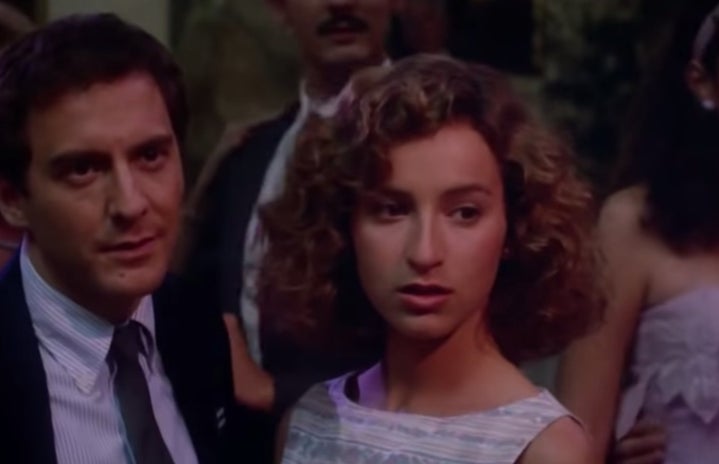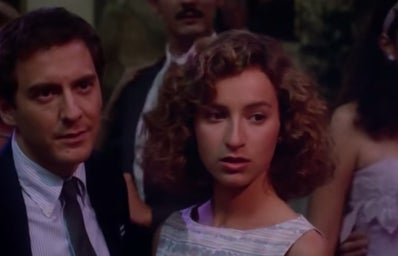The 1987 film Dirty Dancing (dir. Emile Ardolino) is often skipped for consideration of the “best ‘80s films” (despite its status as a classic); passed upon for movies with brat pack-filled casts (even more so if they’re directed by John Hughes). Dirty Dancing earns its classic status not (entirely) because of its cast or long-lasting popularity, but because it argues the need for a woman’s right to choose (and the fact that it was written and directed by women doesn’t hurt).
The film centers around Francis “Baby” Houseman (Jennifer Grey), a soon-to-be college freshman with an extraordinary amount of hope that she can make a difference in helping change the world. She spends the summer with her family, where she meets dance instructor Johnny Castle (Patrick Swayze) and the two fall for each other.
However, Dirty Dancing is much more than a fun, summer fling film—the film very clearly argues the importance of women’s reproductive rights. A major plot point of the film involves Penny (Cynthia Rhodes), the other dance instructor, who has gotten pregnant and cannot keep the baby. Her abortion is scheduled for the same day as a major dance performance at another resort, so Baby takes her place.
The movie takes place in 1963 when all abortions were illegal. Because of this, the procedure is done poorly, and the effect it has on Penny cannot be ignored: screenwriter Eleanor Bergstein said that she made sure to make every pain that Penny endured graphically evident on the screen. She wanted viewers to know that their rights to safe abortions shouldn’t be taken for granted as they could not be guaranteed. While making the movie, she was told that the abortion plot wasn’t necessary (and she should take it out), as Roe v. Wade had already been put in place. But Bergstein said that she was still worried it could be overturned—the attitude of the nation had not shifted with the official legislature regarding abortions. In a 2017 interview, she said:
“I hoped they would learn not to take it for granted. I hoped they would know what it was like before there was [legal] abortion. They didn’t know, because if their mothers had had illegal abortions, they didn’t tell them, and they’d never heard of it. They grew up as Planned Parenthood babies—when they were fourteen, they went and got pills from Planned Parenthood, so they really didn’t know.”
Bergstein also said that without the abortion, the whole movie falls apart: without Penny needing the procedure, there is no reason for Baby and Johnny to dance together, and if they don’t dance together, there is no reason for them to fall in love or for any of the events of the movie to happen. Bergstein took great care to make the abortion such a central part of the plot that it couldn’t be removed, a still-relevant step in the fight for advocating for a woman’s right to choose.



